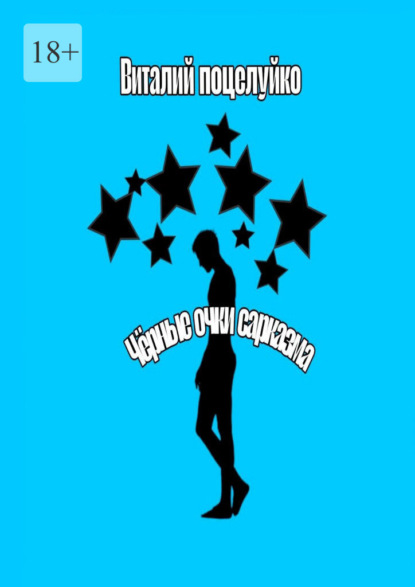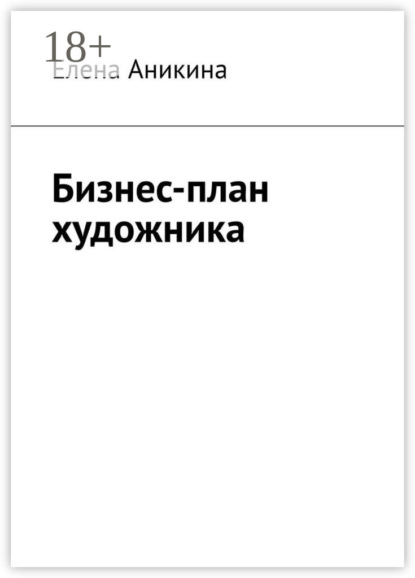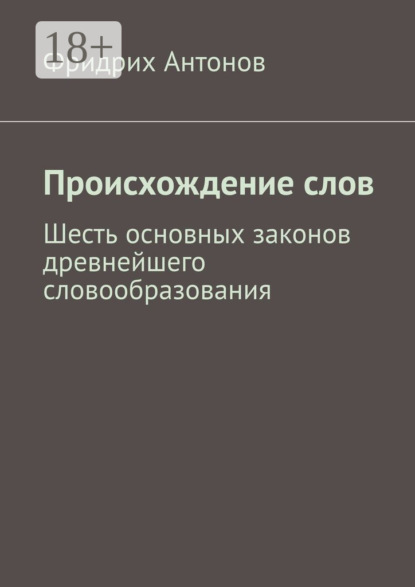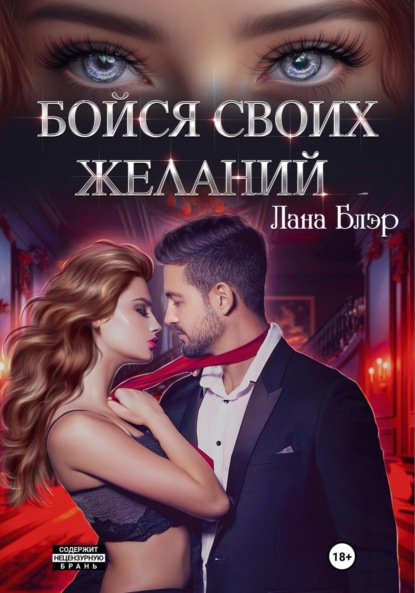The White Storm Rescue on Mont Blanc
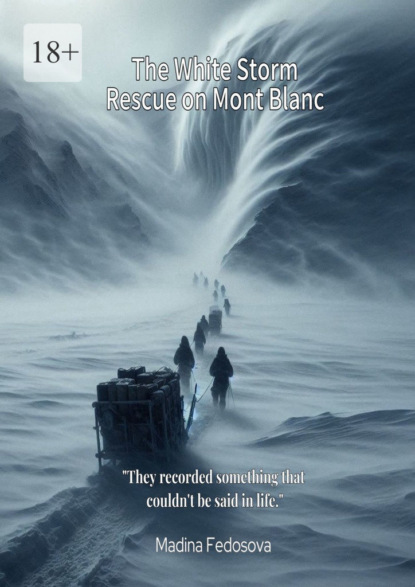
- -
- 100%
- +

© Madina Fedosova, 2025
ISBN 978-5-0068-0668-9
Created with Ridero smart publishing system
Author’s Preface
Mountains do not kill. They simply let us die.
When I first read the story of the two climbers who survived for seven days in a snow trap on the slopes of Mont Blanc, it wasn’t the drama of their situation that struck me most, but the dialogues they held, recorded on a crackling dictaphone. In those recordings, fragmented and interrupted by the howling wind, there was something more than just a survival log. It was a confession. A confession of two people standing on the border between life and eternity.
For a long time, I hesitated to touch this story. Their conversation seemed too sacred, too personal. But the more I pored over those few preserved lines, the clearer I understood: this story must be told. Not as a dry report, but as a parable about man facing the infinite.
“Whiteout” is not a documentary reconstruction of events. It is an attempt to hear what was left beyond the frame of official reports. I changed the names, added fictional episodes, allowed myself to imagine what the blizzard had forever carried away. But the essence remains untouched – two people, trapped in an icy cave, holding the last dialogue of their lives.
Why do we go to the mountains? What do we seek on these dangerous slopes? Perhaps the answer is simple: we seek ourselves. And when we find it – it turns out this “self” is not at all what we imagined down below, in the world of hot coffee and warm blankets.
This book is about the truths revealed to a person when only white darkness remains around. About how all values change when your only interlocutor becomes your own death. About what it means to forgive. Yourself. Others. Even this merciless mountain.
I do not know what those two ultimately experienced in their snowy grave. But working on this book, I felt as if I had been there myself – in that kingdom of silence, where every breath echoes and thoughts become as pure and sharp as alpine ice.
May “Whiteout” be for you not just a reading, but an experience. An experience of ultimate sincerity. For it is only in the face of death that we finally dare to say what truly matters.
– Madina Fedosova
Winter 2023
Somewhere between memory and fiction
P.S. If after reading you feel the urge to step outside and breathe the frosty air deep into your lungs – then I have managed to convey at least a fraction of that sensation of life that opens to a person when they stare death in the eye.
Prologue
Cold
It came unexpectedly, like a thief, creeping through layers of clothing, through thermal underwear and down jackets, through skin and muscle, straight to the bones. Alejandro Gutiérrez felt it even before dawn, as he checked his gear by the tent. His fingers, usually so deft, struggled with the carabiners. His breath turned into white plumes that froze instantly in the air, sprinkling fine crystals onto his gloves.
“Minus twenty-five,” he muttered, glancing at the thermometer. “And that’s before sunrise.”
The sound of a tent unzipping came from behind him. Eivind Larsen stuck his head out; his fair hair stuck out in all directions, the marks of a sleeping bag imprinted on his cheeks.
“My calculations said it shouldn’t be colder than minus eighteen today,” he said, squinting at the thermometer.
“Your calculations can go to hell,” grumbled Alejandro, pulling his ice axe from the backpack.
The ice axe, old and trusted, with the engraving “María, 2005”, suddenly cracked in his hands. A sharp sound, like a gunshot, echoed through the gorge, bouncing off the cliffs. Alejandro froze, examining the break. The steel had snapped clean in the middle, as if sliced neatly by a knife.
“Damn it,” he whispered.
Eivind stepped closer, his breath quickening from the cold.
“That’s… a bad omen,” he said, picking up the broken piece.
“Omens are for superstitious old women,” Alejandro snapped, but uncertainty tinged his voice. He remembered how, ten years ago in the Pyrenees, his wife María’s ice axe had broken a day before the avalanche hit.
“According to data from the Polar Research Institute,” Eivind began in his usual lecturing tone, “83% of mountaineering fatalities occur due to ignoring minor equipment malfunctions.”
“Shut up,” Alejandro said sharply. “Just shut up.”
He threw the broken piece of the ice axe into the snow, where it instantly vanished as if it had never been.
Eivind sighed, pulling a GPS from his pocket.
“The wind is picking up. There will be a blizzard here in two hours.”
Alejandro looked at the sky. Clouds, low and heavy, crawled along the horizon like a herd of frightened sheep.
“When the wind blows from the west, and the clouds crawl like crabs – expect trouble,” he quoted the words of his first guide, an old Basque who had taught him to read the mountains like a book.
Eivind smirked:
“My grandfather, a fisherman from the Lofoten Islands, said: ‘Signs are what those who cannot read a barometer believe in.’”
They stood facing each other, two men, two worldviews, divided not only by nationality but by all their experience. Alejandro, who grew up in the shadow of the Pyrenees, knew from childhood that mountains are not just rocks and snow. They are living beings, capricious and dangerous. Eivind, raised among fjords and glaciers, believed only in numbers, charts, and scientific forecasts.
“Alright,” Alejandro said finally. “Let’s check your barometer.”
They continued their ascent, not knowing that in three hours an avalanche would engulf them with a roar heard for kilometers.
The Avalanche
It came without warning.
First, a faint whisper – a barely perceptible sound, like the rustle of wings. Then a rumble, growing like thunder, turning into a roar. Alejandro only had time to turn around before a white wall of snow crashed down upon them.
He only remembered the sensation of falling, the impact against rocks, snow filling his mouth, his nose, his eyes. Then – darkness.
The first thing he felt upon regaining consciousness was pain. Sharp, piercing, emanating from deep within his body. The second – silence. Not the peaceful silence of the mountains, but a thick, oppressive silence, as if his ears were stuffed with cotton.
“Larsen?” His voice came back as an echo from the icy walls.
A groan answered him. In the flashlight’s beam, Eivind lay pinned against the cave wall, his face pale, almost translucent with pain. He clutched his side, blood seeping through his torn jacket.
“Break?” Alejandro asked, automatically reaching for the first aid kit, remembering how his partner in the Andes ten years ago had died from a similar impact against a rock.
“Ribs…” Eivind grimaced. “But the main thing is this.”
He held up the dictaphone. The tape was still spinning.
“The recording has been going for…” he glanced at his watch, “forty minutes. I started when you were unconscious.”
Alejandro took the device. His own hoarse breathing came from the speaker.
“17:34. This is… Eivind Larsen. If you can hear this – we are under an avalanche on the north slope…”
The Norwegian’s voice on the tape sounded strangely calm, as if he were giving a lecture to students.
“You were recording this while I was dying?” Alejandro felt a surge of rage.
“I was recording the truth,” Eivind corrected him. “In 1963, in the Dolomites, two climbers left a diary – they kept it for nine days until they froze. Read it – and you’ll understand that in the end, everyone writes the same thing.”
Alejandro turned off the recording.
“Then let’s write not like everyone else.”
Outside, the wind howled, but here, in the icy cocoon, a silence fell – the kind that comes before a confession.
Conversation in the Dark
“Do you believe in God?” Eivind asked unexpectedly.
Alejandro, busy bandaging his wound, stopped.
“Why?”
“Just curious. In situations like these, people usually start to believe.”
“I believe in mountains,” said Alejandro. “They are closer to God than any church.”
Eivind gave a weak smile:
“My grandfather said God is just the echo of our cry into the void.”
“Your grandfather seems to have had a lot to say.”
“He was a wise man.”
Alejandro sighed, leaning back against the icy wall.
“If we die here…”
“When,” Eivind corrected.
“If,” Alejandro insisted. “If we die here, what will be left of us?”
“This recording.”
“So what? Someone will find it a hundred years from now, listen to it, and say: ‘Ah, two more fools who climbed a mountain.’”
Eivind closed his eyes.
“Perhaps. But at least they will know our names.”
Silence filled the cave once more. Somewhere beyond the walls, a blizzard raged, but here, in this icy crypt, it was almost warm. Or was that the frostbite beginning to set in?
Alejandro picked up the dictaphone.
“Then let’s tell them the whole truth.”
And he pressed the record button.
Part One
The Edge
Chapter 1
Foreboding
Bilbao, Spain. Morning.
Bilbao greeted the dawn with the rumble of garbage trucks and the cries of seagulls. Alejandro woke to the sound of a cold sea wind slamming the shutters against the windowsill. He lay motionless, listening to Carmen filling the coffee pot in the next room – precise, economical movements honed over fifteen years of marriage. On the nightstand, next to a photo of Luisa in first grade, lay his old hiking watch with a cracked crystal – a gift from Javier before their last climb together.
He got up, and his bare feet touched the tiles, cold as glacial moraine. The bedroom smelled of naphthalene from the winter clothes Carmen had unpacked the day before, and the faint scent of lavender – her favorite sachets in the dresser. Through the open window drifted the aroma of roasted almonds from a street vendor and the salty breeze from the estuary.
“Couldn’t sleep again?” Carmen stood at the stove, stirring chorizo. Her voice sounded tired, without expectation of an answer. “At three o’clock, I heard you pacing the kitchen.”
Alejandro silently poured coffee into a tin mug – a gift from his daughter last birthday. The inscription “Best Dad” had faded from countless washings.
“Taking Luisa to school today?” Carmen asked, cracking an egg against the edge of the pan with one precise movement.
“At eight-thirty. Then I need to stop by the office.”
“The office again?” She turned sharply, and a drop of grease from the pan fell on her pink robe, leaving a stain. “Last time you ‘stopped by the office’ and disappeared for three days in the Pyrenees. We have a parent-teacher conference next week.”
He reached for a napkin, but Carmen had already turned away, wiping the stain with the edge of her robe. Outside, the bell of the San Nicolás church rang, marking seven o’clock. Down on the street, an old neighbor was walking her dachshund, which was barking furiously at a cat sunbathing on the roof of a 1992 Citroën.
“It’s an important client,” Alejandro said, though he knew Carmen had already figured it out. She always did.
“All your clients are important. Until the bills come due.” She set a plate of fried eggs in front of him, the yolk neatly separated from the white – as she always did, knowing he hated them mixed.
He wanted to answer, but at that moment Luisa burst into the room in her pajamas with climbing carabiner prints – a gift from her father last year.
“Dad, is it true there are mummies of climbers on Mont Blanc?” The girl jumped onto his lap, smelling of children’s shampoo and sleep.
“Not mummies, little one,” he said, fixing her braids, tousled from the night. “It’s just… very cold up there. So cold that people…”
“They turn into ice statues!” Luisa interrupted, her eyes shining. “Amina told me yesterday! She said they stand there like ghosts and move when the wind blows!”
Carmen slammed the refrigerator door shut.
“Enough of these scary stories at breakfast. Luisa, go get dressed.”
When the girl ran out, silence hung in the kitchen. Alejandro poked at his eggs with a fork, watching a sunbeam play in a puddle of coffee on the table. Carmen stood by the window, her back to him, watching the old neighbor vainly trying to drag her dachshund away from a tree.
“You promised,” she said finally, without turning around. “After what happened in the Andes. No more winter solo ascents.”
He put down his fork, leaving the eggs almost untouched.
“I’m not alone. There’s a Norwegian with me. A professional.”
“What Norwegian?” Carmen turned sharply, and he saw the same fear in her eyes as ten years ago in the hospital.
“From the University of Bergen. A glaciologist. We…” he reached for his backpack by the door, “…we’re studying glacier changes on the north face.”
Carmen silently picked up his passport from the table, where he had left it the night before. The page with the French visa was neatly tucked in so it wouldn’t be obvious.
“Three years ago,” she said quietly, “when you went to the Dolomites, you also talked about ‘research.’ And then I got a call from the hospital in Bolzano.”
Outside, an ambulance siren wailed – must be another one of the old folks in the neighboring building. Alejandro stood up, leaving his coffee undrunk.
“This is different. We have a satellite phone, a full set of gear…”
“Like Javier had?” Carmen threw the passport on the table. “Remember? The newest ice axes, a million-euro insurance policy… Didn’t help him much, did it?”
He took a sharp breath, feeling the old scar on his side – a souvenir from that very avalanche in the Andes – begin to ache, predicting a change in the weather.
“I have to do this,” he said simply. There were no other words she hadn’t heard before.
Carmen looked at him, then slowly pulled a crumpled piece of paper from her robe pocket – his train ticket to Barcelona. She knew. She always knew.
“At eight-thirty,” she said, putting the ticket back on the table. “Don’t be late for school. Luisa will be waiting for you at the gate.”
When she left, Alejandro remained alone in the kitchen, listening to Luisa humming a song about a yeti as she packed her schoolbag next door. Outside, the dachshund finally broke free from the tree and was now barking joyfully at pigeons. Somewhere in the port, a ship bound for England sounded its horn. Life went on, ordinary, mundane, warm. And in his backpack, he already had the tickets, his gear, and twenty-three letters – one for each day of his absence. In case the mountain decided to keep him forever.
Oslo, Norway. Evening.
The Fjord bar was located in the basement of Oslo Airport’s old terminal. The ceiling was so low that tall visitors instinctively stooped, and the ventilation system occasionally made sounds resembling the howl of a mountain wind. Eivind Larsen sat in his usual corner, where the wooden wall was adorned with a photo of his father against the backdrop of Everest. On the table in front of him stood a glass of traditional Norwegian potato liqueur, which this bar made according to an old recipe with cumin and anise.
Behind the counter, Torgeir, a former polar explorer with frostbitten fingers, slowly sorted bottles on the shelf. His massive figure cast a shadow on the wall, which held:
A yellowed map of Antarctica from the 1980s
A photo of the first Norwegian expedition to the South Pole
A collection of old ice axes from different eras
A clock with a frozen hand showing 17:34—the time when a group of climbers died on K2 in 2002
“Can’t sleep again?” Torgeir’s voice sounded hoarse, as always after his morning cigarette. He set a plate of smoked salmon and rye crisps in front of Eivind. “Third day in a row I see you here at this time.”
Eivind slowly unfolded a bright postcard sent from France. The paper smelled of expensive perfume and something else – perhaps snow from the alpine peaks. “An invitation to suicide,” he muttered, showing Torgeir the text: “Mont Blanc. 4810 m. Come if you dare. Les Aigles Blancs.”
“Ah, those Parisian snobs,” Torgeir wiped his hands on his apron, leaving traces of fish oil. “They still can’t forgive you for summiting Everest without oxygen when their star climber came back with frostbitten lungs.”
Eivind reached for the liqueur but suddenly froze, hearing a familiar sound – the screech of crampons on the tiled floor. In the doorway stood a young guy in a new climbing jacket, looking around uncertainly.
“See him?” Eivind nodded toward the newcomer. “I was like that twenty years ago. Full of ideas, ambitions… and a complete lack of understanding of what real mountains are.”
Torgeir grunted, pulling out an old photo from under the counter: “And here’s you on your first climb. The same look.” In the picture, a young Eivind stood next to a tall man – his exact copy, just twenty years older.
“Father said the mountains don’t forgive two things – overconfidence and fear,” Eivind took a sip of liqueur, feeling the warmth spread through his body. “But he didn’t say the most important thing – they also don’t forgive those who come to them with the wrong questions.”
Outside, a plane taking off rumbled, making the glasses on the shelves tremble. Torgeir poured himself a drink, the compass tattoo on his forearm shifting as he raised his glass: “So why are you even going to these Frenchmen? After all that happened…”
Eivind took a worn notebook from his pocket, opening it to a page marked “North Route. January 2013.” “See these numbers? This is data on the glacier’s movement over the last ten years. Something’s wrong here. Every January on this section…” He fell silent, noticing the newcomer at the bar pricking up his ears.
Torgeir lowered his voice: “And this Spaniard? Gutiérrez? Does he know what he’s signing up for?”
“He knows more than he says,” Eivind unfolded a map on the table where five points along the north face were marked in red. “Every year on January 15th, he hikes this route alone. Exactly ten years in a row. Like clockwork.”
The bar suddenly smelled of fried onions – a plate of hot snacks was brought out from the kitchen for a group of noisy tourists. Eivind wrinkled his nose – that smell always reminded him of cheap mountain huts in the Alps.
“Did you talk to his wife?” Torgeir wiped a glass so thoroughly, it was as if he were trying to erase the past from it.
“She refused to see me. But she sent a message through her daughter…” Eivind took out an envelope with a child’s drawing – a mountain and two figures at its base. “She knows he won’t come back this time. And she still lets him go.”
Outside, the runway lights came on, casting a bluish tint on Eivind’s face. He finished his liqueur, feeling the alcohol mix with the fatigue of recent sleepless nights.
“Flight at six a.m.,” he said, standing up and adjusting his backpack, from which crampons and an ice axe handle protruded. “If there’s no word in two weeks… you know where to look.”
Torgeir nodded silently, his gaze sliding over a photo on the wall – a group shot of the 1994 expedition, where among the smiling faces, one serious one stood out – young Eivind, standing next to his father on the last day before that fateful climb.
When the door closed behind Eivind, Torgeir took out an old map of Mont Blanc from under the counter, where someone had carefully circled that very north route in red pencil. In the margin was written: “The glacier doesn’t forgive twice. 17.01.2003.”
Sagrado Corazón School. 8:05 a.m.
An autumn morning in Bilbao began with the characteristic hum of garbage trucks and the shouts of fishermen returning from the night’s catch. The humid air was saturated with the aromas of freshly baked bread from the corner bakery, the salty breeze from the estuary, and the faint scent of pine – city workers had already started decorating the streets for the upcoming holidays.
The schoolyard of Sagrado Corazón was a bustling anthill. Children in blue uniforms with the school’s crest on their chests darted between old plane trees whose leaves had already begun to yellow. On the facade of the building, constructed in 1912 in the Neo-Gothic style, hung a sign with the school’s motto: “Cor scientiae, cor compassionis” – “A heart of knowledge, a heart of compassion.”
Luisa was jumping in puddles left by the night’s rain, her new yellow backpack bouncing on her back, her rubber boots with unicorn prints leaving clear impressions on the wet asphalt.
“Dad!” her ringing voice cut through the general hubbub. “Is it true there are frozen people on Mont Blanc? Amina said yesterday they stand there like statues, and their faces are perfectly preserved! She saw pictures online!”
Alejandro adjusted her crooked hood, feeling the rough fabric under his fingers. He bent down to tie the lace on her left shoe, which was always coming undone.
“You see, ma petite,” he began, choosing his words carefully, “tragedies sometimes happen in the mountains. The ice preserves the climbers’ bodies, but they’re not mummies in the usual sense. It’s more…” he hesitated, “…more like monuments to themselves.”
The tag from a new children’s backpack with a GPS tracker – a “just in case” gift – stuck out of his jacket pocket.
“So they really are standing there?” Luisa’s eyes widened. “Like in a museum? Can you touch them?”
At that moment, Amina ran up to them, the daughter of Moroccan immigrants who always squinted, refusing to wear glasses. Her blue headscarf – a mandatory part of the school uniform – was tied carelessly, revealing dark curls.
“Monsieur Gutiérrez!” the girl made an elegant curtsy, taught to her by her grandmother, a former dancer. “Is it true you’re going to that very mountain? But it’s dangerous! My aunt said people die there every year!”
“Amina!” Luisa frowned and stamped her foot, sending up a spray of water. “I asked you not to talk about it!”
Alejandro felt a shiver run down his spine. He looked at his watch – an old mechanical one, a gift from Javier before their last climb together. The hands showed 8:15—his train to Barcelona left in forty-five minutes.
“Girls,” he crouched down to be at their eye level, “mountains are like… very strict teachers. They demand respect, attention, and preparation. But if you do everything right…”
“Then you can find treasure!” Luisa interrupted, grabbing her father’s hand. “You said the most beautiful clouds hide on the peaks!”
The PE teacher came out of the school doors – a grey-haired woman in her sixties with a face resembling a relief map of the Pyrenees. Her voice, accustomed to commanding in the wind, easily cut through the noise of the children’s voices:
“Gutiérrez! Bensaid! Morning assembly! We have a rehearsal for the Christmas play today!”
Luisa suddenly looked seriously at her father and shoved her hand into her jacket pocket. She pulled out a crumpled piece of paper.
“Here,” she whispered. “It’s you and me on the summit. So you don’t forget what we look like.”
Alejandro unfolded the drawing – a blue mountain and two small figures on the summit. In the corner, a child’s hand had written: “For the best dad.”
“I…” his voice trembled. “I will definitely come back, ma petite. And we’ll together…”
“Monsieur Gutiérrez!” Amina suddenly shouted, interrupting him. “Is it true you can see five countries from the top? And that there’s a special book where everyone writes their names?”
The children around them giggled, and the PE teacher shook her head, probably remembering dozens of similar fathers who had gone to the mountains. Alejandro just waved his hand and quickly walked toward the exit, where a taxi driver was waiting – an old Basque with a face etched with wrinkles like a mountain trail.
As the car pulled away, he saw through the window Luisa and Amina standing hugged, discussing something animatedly. Then they both waved to him simultaneously – one energetically, like a metronome, the other gracefully, like a ballerina.
The taxi driver turned on the radio, which was broadcasting a weather forecast for the Alpine region. The announcer spoke of an approaching storm and dropping temperatures. Alejandro closed his eyes, inhaling the mixture of scents – the car seats’ leather, the sea air seeping through the slightly open window, and the faint smell of school chalk lingering on his fingers after saying goodbye to his daughter.
